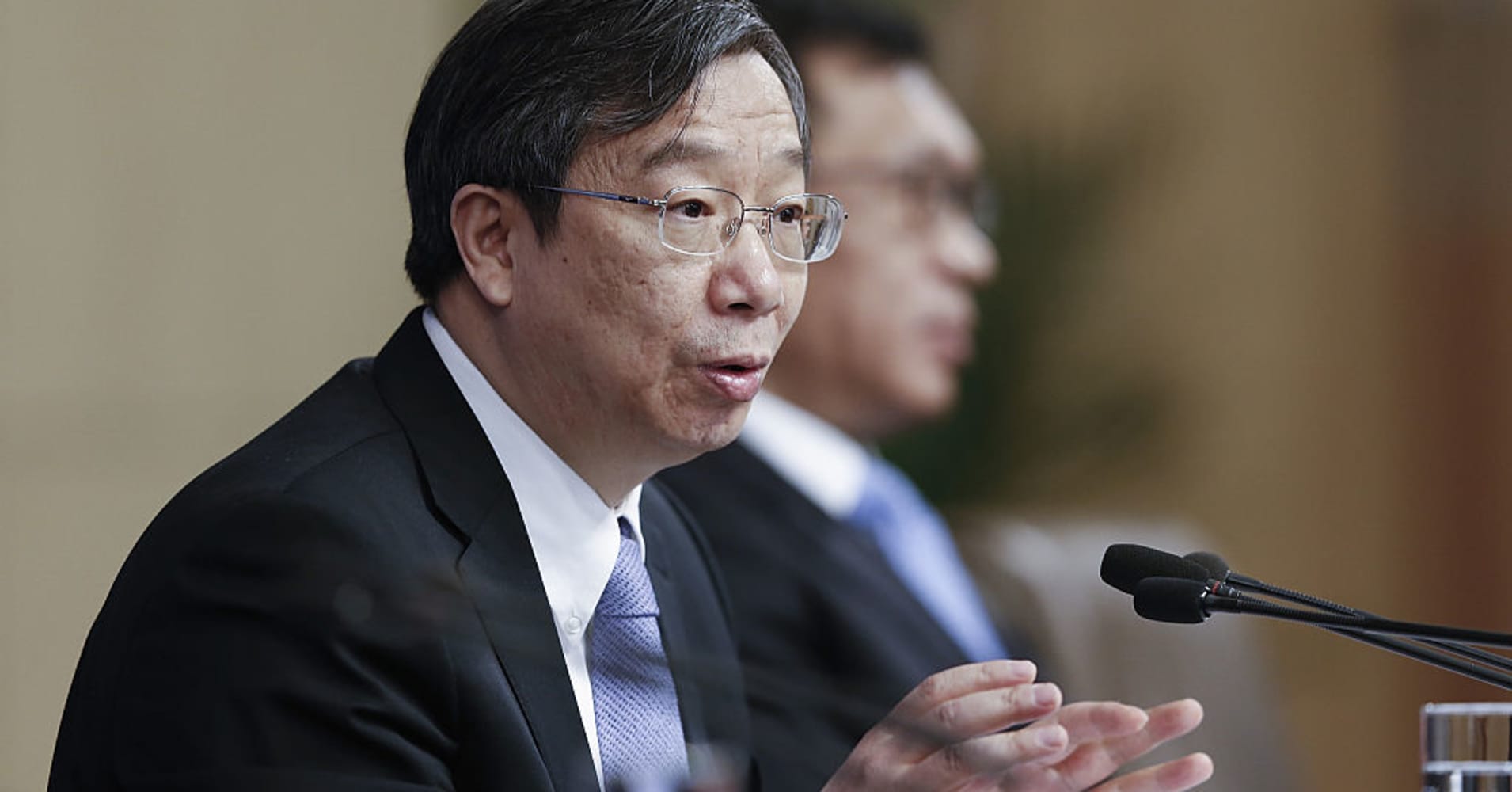
Three top Chinese financial regulators spoke in support of local markets on Friday, just ahead of the morning's disappointing gross domestic product report and amid an ongoing stock sell-off.
All three statements were transcripts of interviews with media, according to postings on each government organization's website.
"The recent stock market volatility is primarily the result of investor expectations and emotions," said the Chairman of the People's Bank of China, Yi Gang, according to a CNBC translation.
China's economic fundamentals are good, in contrast to the historically low valuations in the stock market, Yi added.
The central bank "actively encourages" some local governments' policies to support the liquidity of businesses based there, and is promoting plans to support equity and bond financing of private enterprises, he said.
The Shanghai composite is trading near four-year lows, hit by worries about economic slowdown, increasing trade tensions with the U.S. — China's largest trading partner – and a global market sell-off in the last few weeks.
The index ended Friday's morning session little changed after China reported third-quarter gross domestic product of 6.5 percent, its weakest since 2009 and missing expectations of 6.6 percent from a Reuters poll of analysts. The country remains on pace to meet its official growth target of roughly 6.5 percent.
Chinese President Xi Jinping's top economic advisor Liu He said in an interview Friday published by state news agency Xinhua that the stock market slump is due partly to the U.S-China trade tensions and other external factors. Liu also attributed the decline to China's economic transition and economic uncertainty, but that the sell-off could be good for the stock market's healthy long-term development.
China Securities Regulatory Commission Chairman Liu Shiyu said in a separate statement that the commission has maintained a baseline of financial market reform, opening up innovation as it seeks to stabilize and boost market confidence.
"[We will] encourage local government-managed funds, qualified private equity investment funds, broker-managed products or newly organized funds, to help relieve the stock pledge difficulties of public companies with good prospects but are temporarily facing operational difficulties, so they can develop healthily," Liu said.
China's retail investor-dominated stock market tends to be less correlated to economic growth. But the private companies that are listed have been finding it difficult to get funding, since banks prefer to lend to state-owned enterprises and Beijing has been cracking down on off-balance sheet loans.
As a result, many companies have been turning to "share pledge financing," in which equity is used to obtain loans. If the share price falls drastically below a certain agreed-upon level, the lender will sell the stocks to obtain funds. Nomura estimates the ratio of outstanding pledged shares in the mainland Chinese A-share market is about 8.9 percent in the third quarter, down from a peak of 10.4 percent in the first quarter of 2016.
Guo Shuqing, chairman of the China Banking and Insurance Regulatory Commission, said insurance funds can establish special-purpose products to alleviate the liquidity risk of listed companies' stock pledges. The commission also released a draft of new regulations on Friday that could allow bank's wealth management subsidiaries to directly invest in stocks.
"Recently, due to various factors, China's financial market has experienced a large number of abnormal fluctuations, which is seriously out of touch with the fundamentals of China's economic development and inconsistent with the overall soundness of China's financial system," Guo said.
The Shanghai composite rose more 2 percent after markets reopened in afternoon trading, with information technology stocks leading the way, up more than 4 percent. The overall stock index is down about 2.5 percent for the week, and roughly 23 percent so far this year.
via IFTTT
No comments:
Post a Comment